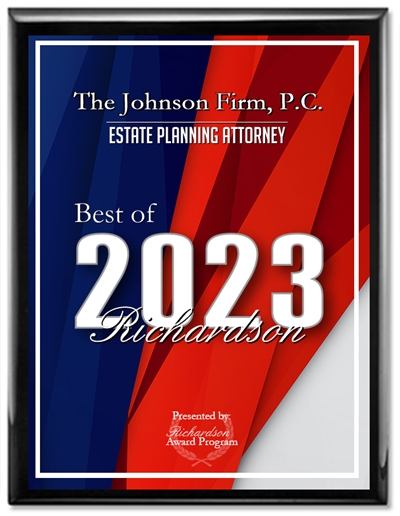When a loved one is unable to make important decisions due to age, illness, or incapacity, establishing a guardianship may be necessary to ensure their well-being and protect their interests. Navigating the guardianship process in Texas can be complicated—especially when disagreements arise among family members or other interested parties.
At The Johnson Firm, P.C., our attorneys guide clients through every aspect of the guardianship process, including both uncontested and contested guardianship matters. We understand that the need for guardianship can be an emotional and stressful time for families. Whether you are seeking to establish guardianship for a loved one or facing a contested case, we are here to help you every step of the way.
What Is Guardianship?
Guardianship is a legal process in which a court appoints a responsible person (the “guardian”) to care for and make decisions on behalf of another individual (the “ward”) who is unable to manage their own personal, medical, or financial affairs. In Texas, guardianship may be necessary for adults with disabilities, elderly individuals with diminished capacity, or even minor children without a suitable caregiver.
Our firm assists with all aspects of guardianship, from filing the initial application to representing clients in both uncontested and contested hearings. We are equipped to handle cases involving disputes over who should serve as guardian, allegations of abuse or neglect, and disagreements regarding the ward’s best interests.
Why Might a Guardianship Be Needed?
Guardianship may be required when a person is unable to:
- Make decisions about their medical care, living arrangements, or daily needs.
- Manage finances or protect assets from fraud or exploitation.
- Care for themselves due to dementia, mental illness, physical disability, or injury.
- Make important legal decisions, such as entering contracts or consenting to medical treatment.
- Minor children are left without parents or legal guardians.
When less restrictive alternatives, such as a power of attorney or supported decision-making, are unavailable or inappropriate, guardianship provides a court-supervised solution to ensure the ward’s needs are met and their rights are protected.
The Texas Guardianship Process: 5 Key Steps
Understanding the steps in the guardianship process can help you know what to expect:
- Application Filing: The process begins by filing an application for guardianship with the appropriate Texas probate court.
- Notice and Appointment of Attorney: The proposed ward and other interested parties are notified, and the court typically appoints an attorney ad litem to represent the proposed ward’s interests.
- Evaluation and Report: The court may require a medical or psychological evaluation to determine the ward’s capacity and need for guardianship.
- Court Hearing: A judge will conduct a hearing to review evidence, hear from all parties, and determine whether guardianship is necessary and who is best suited to serve as guardian. In contested cases, the court will resolve disputes between family members or other interested parties.
- Ongoing Oversight: If guardianship is granted, the guardian is responsible for the ward’s care and must report to the court periodically to ensure continued oversight.
Whether the process is amicable or involves significant disagreement, our attorneys advocate for our clients’ interests and strive for the best outcome for all involved.
How Our Attorneys Can Help
Texas guardianship law can be complex, and the stakes are high when a loved one’s well-being is on the line. At The Johnson Firm, P.C., we provide compassionate, skilled guidance through every stage of the guardianship process. We represent clients in both uncontested cases—where everyone agrees on the need for guardianship and who should serve—and in contested cases, where disagreements require litigation or mediation.
Our firm handles all aspects of guardianship, including:
- Filing guardianship applications and handling all required documentation
- Representing proposed guardians, wards, and other interested parties in court
- Navigating complex disputes and allegations of abuse or financial exploitation
- Advising on alternatives to guardianship, when appropriate
We are committed to protecting the rights and dignity of vulnerable individuals while ensuring families have the support and advocacy they need.
h3 Schedule a Consultation to Discuss Guardianship
If you believe a guardianship may be needed for a loved one—or if you are facing a contested guardianship matter—our experienced attorneys are here to answer your questions and guide you forward. To schedule your consultation, please call us at (972) 299-3488 or fill out our online contact form.














